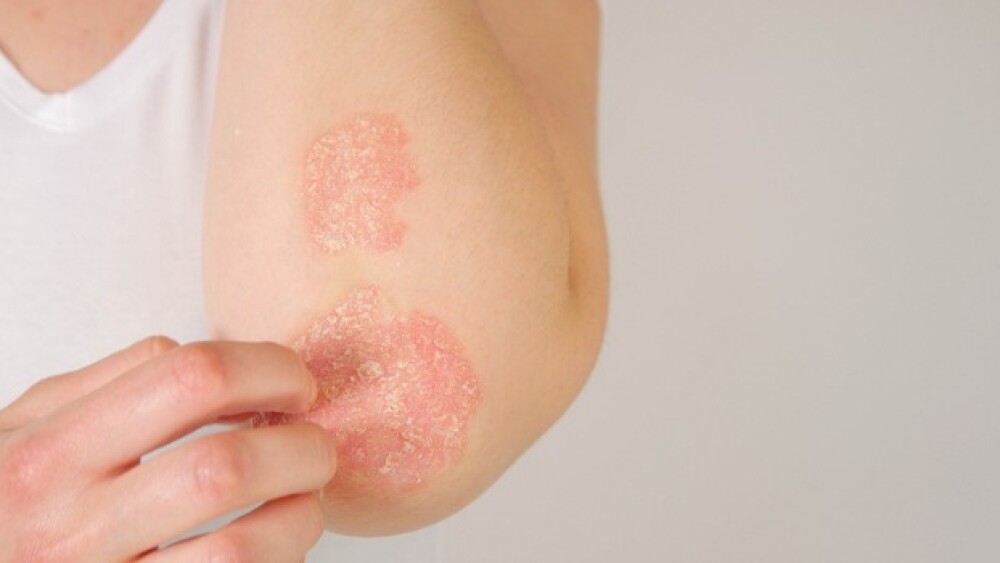Fresh off its $259 million Series C funding round, Alumis unveiled mid-stage data Saturday for its TYK2 inhibitor ESK-001 demonstrating strong symptomatic improvement in moderate-to-severe plaque psoriasis.
Pictured: Woman scratching psoriatic lesions on her elbow/iStock, helivideo
Alumis on Saturday posted promising data from the Phase II STRIDE study demonstrating that its investigational TYK2 inhibitor ESK-001 can significantly reduce the severity of lesions in patients with moderate-to severe plaque psoriasis.
The results, presented during a late-breaking session at the annual meeting of the American Academy of Dermatology, showed that all dose levels and schedules of ESK-001 resulted in a significantly higher proportion of patients achieving a 75% improvement on the Psoriasis Area and Severity Score (PASI), which is a widely used tool to evaluate the severity of psoriasis.
At week 12, 64.1% of patients treated with a 40-mg, twice-daily regimen achieved the endpoint, also known as PASI-75. Meanwhile, 56.4% of those assigned to the 20-mg, twice-daily and 40-mg, once-daily schedules met the same outcome. These data were all significantly higher than in the placebo group, in which no participant achieved PASI-75.
Even the lowest dosing regimen of 10-mg, once-daily ESK-001 elicited a significantly higher rate of PASI-75 than placebo.
Alumis CMO Jörn Drappa in a statement said that these data “support the potential for a best-in-class profile for ESK-001 in psoriasis,” pointing to patients who demonstrated a “high degree of clinical improvement at week 12 that continued to increase over time.”
The biotech is now preparing to take ESK-001 into Phase III trials, with an eye toward launching the drug as an oral therapy with a better efficacy profile than current treatments on the market, Alumis CEO Martin Babler said in a statement. The company will also advance the candidate in other immune-mediated indications.
ESK-001 is a highly selective allosteric inhibitor of the TYK2 protein. The oral drug candidate works by dampening signaling through the IL-12, IL-13 and interferon-α receptors, tempering the body’s immune and inflammatory responses.
In STRIDE, this mechanism of action also helped ESK-001 meet key secondary endpoints. At the highest dosing schedule—40-mg twice-daily—38.5% of treated participants achieved PASI-90, while 15.4% reached PASI-100, indicating a 100% improvement in PASI scores.
In terms of safety, ESK-001 was overall well-tolerated, inducing no treatment-related serious adverse events. Study dropouts due to side effects were low and the study did not find signs of toxicities associated with JAK inhibition.
STRIDE’s open-label extension phase, which followed patients up to 16 weeks, likewise showed that PASI endpoint responses increased even further and that ESK-001 continued to be well-tolerated.
Saturday’s readout comes days after Alumis closed its $259 million Series C funding round to help bring ESK-001 into late-stage development. The candidate will help it compete with Bristol Myers Squibb, which owns the TYK2 inhibitor Sotyktu that won the FDA’s approval in September 2022 for the treatment of moderate-to-sever plaque psoriasis.
Tristan Manalac is an independent science writer based in Metro Manila, Philippines. Reach out to him on LinkedIn or email him at tristan@tristanmanalac.com or tristan.manalac@biospace.com.






